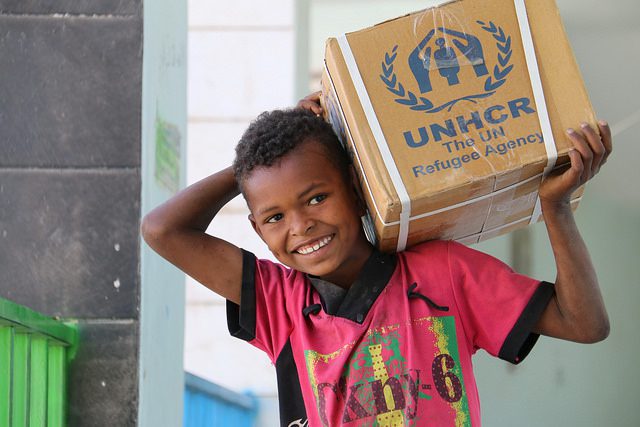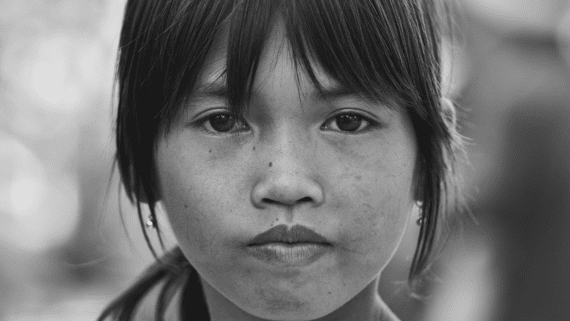Everything is stacked against the people on the brink of starvation in Yemen.
Richard Stanforth, Humanitarian Policy Adviser, Oxfam
By Michele Learner, Bread for the World Institute
About 14 million people in Yemen, the Middle East’s poorest country, are suffering from a hunger crisis caused by a brutal war now in its second year. Food insecurity in some parts of the country is categorized as Level 4, “emergency.” Level 5 is “famine.”
At least 370,000 children younger than 5 are suffering from severe acute malnutrition, which is fatal if not treated. There are 1.5 million chronically malnourished young children, and more than half of the country’s entire population is malnourished.
Stephen O’Brien, U.N. Undersecretary-General for Humanitarian Affairs and Emergency Relief Coordinator, said in early October that it is “outrageous” that 80 percent of Yemen’s people are in need of humanitarian assistance. O’Brien reported that U.N. relief efforts are reaching 4 million people, but the U.N. appeal for emergency assistance is only 46 percent funded. There’s a shortfall of $880 million.
O’Brien called for additional funding and for warring parties to allow aid workers to reach civilians, but he also urged all sides to find a way to end the war. “The best humanitarian relief that can be provided is an end to the conflict,” he said. Both sides agreed to a ceasefire in April 2016, but hostilities resumed three months later when U.N.-brokered peace negotiations collapsed.
Bread for the World Institute’s analysis shows consistently that conflict is a major cause of hunger. It destroys food crops as well as people’s access to food – markets, storage facilities, vehicles, and other resources needed for food distribution. Beyond this, conflict destroys communities and creates humanitarian crises as people are forced to leave home with whatever they can carry to escape violence and look for food. Those who flee may feel safer, but they are often worse off than before when it comes to food, shelter, and medicine. They have left behind the land where they grow food, their extended families and support networks, and most of their possessions.
The military coalition that supports Yemen’s exiled president, Abd Rabbuh Mansur Hadi, has imposed a sea blockade on territory held by the forces fighting the Hadi government for control of the country. These fighters, known as the Houthi rebels, are associated with a branch of the country’s Shi’ite minority. Most ships carrying food and medical supplies are unable to dock.
In September, Hadi ordered the central bank to relocate its headquarters from the capital city of Sana’a, currently controlled by the rebels, to Aden, a southern port city held by the government. His aim is to cut off funds to fighters, but according to reporting by Reuters News Agency, “The move could leave ordinary Yemenis short of cash and make food shortages worse by depriving traders of the financial cover the bank has offered.” Oxfam’s humanitarian policy adviser, Richard Stanforth, concurred: “The politicization of the central bank and attempts by the parties in the conflict to use it as a tool to hurt one another … threaten to push the poorest over the edge.”
The U.N. World Food Program is providing humanitarian assistance to millions of Yemenis. Its website offers information on how to help.
Michele Learner is associate editor at Bread for the World Institute.



